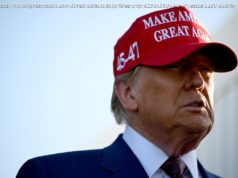The collapse of a populist coalition may be good for stability in the short term, but in the long term it’s bad for democracy.
PARIS—It’s time to retire the famous line by the Italian writer Ennio Flaiano, that in Italian politics, the situation is “always grave but never serious.” Today, it’s fair to say the situation is both grave and serious. The implosion on Sunday of a populist governing coalition—after Italy’s president vetoed the coalition’s choice of a euroskeptical economist as finance minister—has achieved three results, none of them good for the stability of Italy or Europe. It’s set Italy on the path to new elections. It’s strengthened the hand of the right-wing, anti-immigrant League party. And it’s turned Italy into a de facto referendum on the euro—an unprecedented development in a core member of the European Union and single currency.
On the brink of power, the coalition of the anti-establishment Five-Star Movement and right-wing League party collapsed after Giuseppe Conte, an untested, unelected lawyer they had chosen to lead their government, stepped down. This prompted Italy’s president to tap a technocrat—Carlo Cottarelli, a professor who has been nicknamed “Mr. Scissors” in the Italian press because he oversaw a spending review of Italy’s state budget—to try to form a so-called “neutral” government to lead Italy to new elections that could be as soon as this fall. But even though the president, Sergio Mattarella, has full powers to veto ministers and said he was acting in the interests of Italy when he vetoed the finance minister choice, the very fact that he named a technocrat seemed to go against the results of Italy’s national elections in March, when more than half of voters delivered a strong anti-establishment message.
It’s the latest example of a short-circuit that was tripped when the European debt crisis began a decade ago: Mattarella’s move may be good for short-term stability in the European Union, but it’s not great for democracy—which in turn emboldens the populists who increasingly see the bloc as anti-democratic. The appointment of Cottarelli is a gift for the League, whose leader, Matteo Salvini, campaigned all along on a platform of liberating Italy from servitude to Brussels and Berlin. Meanwhile, the leader of the Five-Star Movement, Luigi di Maio, who only days ago said it was up to the president to choose ministers, has now set Italian social media on fire with calls for Mattarella’s impeachment because he intervened in selecting ministers, and has also called for mass mobilizations across Italy “to manifest our right to determine our future.”
“Mattarella fell into a trap,” said Nathalie Tocci, the director of the Instituto di Affari Internazionali, a Rome-based think tank. She and others believe the League had been gunning for new elections all along because polls show a right-wing bloc would gain a majority and not need the Five-Star Movement to govern. (The two parties allied two weeks ago after weeks of fruitless talks, since the March 4 vote failed to produce a clear majority.) That’s why the League proposed the euroskeptical economist as finance minister, Paolo Savona, and not a more moderate figure, knowing his presence would unsettle financial markets. The fact that the League didn’t suggest a new name for finance minister also lends support to the idea they wanted elections, not compromise.
But in rejecting Savona, Mattarella had good reasons. He said on Sunday that any conversations about Italy’s membership in the euro should be held in public—especially since euro membership wasn’t an issue for debate in the platform agreed on by the Five-Star Movement and the League for the government they put forth last week. The League’s Salvini has flip-flopped in recent years on whether he wants Italy to stay in the euro. In the past, he’s said he wants a referendum on euro membership; during the campaign, he moderated his tone on the euro but raised it on immigration. Meanwhile, Di Maio of the Five-Star Movement kept quiet on the euro during the campaign, but the movement’s founder, Beppe Grillo, said this month that he wanted a “consultative referendum” on the currency. “It might be a good idea to have two euros, for two more homogeneous economical regions. One for northern Europe and one for southern Europe,” he told Newsweek this month.
Which brings us to another issue: The euroskeptics have a point. Beyond Italy’s own self-inflicted economic stagnation—which helped get the populists elected in the first place—there are fundamental flaws in the architecture of the euro and no other country in the bloc, including France, can fully compete with Germany’s economic power. To sustain the euro, Europe needs to find a way to mutualize debt, which for now stays national. The problem is that the new developments in Italy will effectively shut down that conversation. “The whole German worry is about risk sharing and giving other countries guarantees and not being able to have any sort of rules-based mechanism working well,” said Daniele Schwarzer, the director of the German Council on Foreign Relations. “The arrival of a populist government in Italy—or the scenario now is uncertainty in Italy—basically feeds into the fear that Italy doesn’t play by the rules and that will make any move toward deeper integration more difficult.”
Cottarelli is expected to name ministers Monday and present his government for a confidence vote in Parliament. Even if it doesn’t pass, he can govern until bringing the country to new elections, which will happen on his watch. The short-circuit continues.






